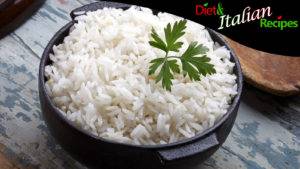Finally, a balanced weekly diet, not for losing weight, but for learning to eat healthily, making it a habit without difficulty. If we stop to think about the complexity of the human body, it seems obvious to imagine how complicated it is to structure a healthy and balanced diet. Moreover, we are all different, and our bodies react differently to food. It is not enough to say, “eating salad will make me lose weight” or “eating fish will improve my vision” and become the nutritionists of the year. To know what your balanced weekly diet should be, you will have to understand the quantities and types of food you need and, above all, how to incorporate them into your meal plan without difficulty in order to eat healthily out of habit.

Unfortunately, most people rely on online menus and neglect visits to nutritionists, believing they can manage with the few tools they have. In reality, managing a healthy and balanced diet week after week is a Herculean task for those who have no knowledge on the subject. From foods to portions and macronutrients, everything could be completely right or wrong, and you would never know.
Here’s news that should motivate you to find the most suitable balanced weekly diet for you: the main reason why we face numerous health problems and constantly wait in line at the doctor’s office as we age is that we haven’t taken care of our bodies throughout our active lives. Usually, we say, “I’ll start the diet next Monday, now I can eat whatever I want.” We can’t expect remarkable results with this lifestyle of constant “postponement.” Interestingly, there’s always a future date to which we can postpone our diet commitments. After understanding that in order to feel better week after week, we need to focus on establishing a healthy and balanced diet, let’s see how it’s done.
First of all, there are guidelines from the Higher Institute of Health (ISS) and various organizations that deal with people’s health and well-being. After delving into all the topics related to human health, we realize that gut health is fundamental to well-being. Therefore, following a healthy diet becomes a must for always feeling good.
How to Eat Healthy as a Habit: Useful Tips
The useful tips for learning to eat healthy consistently, as a habit, and without difficulties that we can provide you with today are applicable immediately:
- Drink 2 liters of water every day, but keep in mind that the more you weigh, the more active you are, the more you sweat, and the more you will need to drink. Here’s a formula to calculate exactly how much water to drink based on weight and height.
- Consume 5 servings of fruits and vegetables daily. Consuming seasonal fruits, especially in summer, and seasonal vegetables is highly recommended. Eating seasonal foods allows you to always keep up with the vitamins and minerals that our body needs during a specific time of the year.
- Aim for 2 or 3 servings of plant-based fats per day, such as extra virgin olive oil. In particular, it is recommended to consume foods with good fats, such as nuts, almonds, chia seeds, flax seeds, or avocado, as they are highly energetic.
- Include 1 or 2 servings of proteins per day, preferably plant-based proteins and less frequently animal proteins like white meat, fish, or eggs. Limit the consumption of red meat as much as possible since it has been shown to be carcinogenic. However, enjoying a healthy steak occasionally, for example, when dining out, shouldn’t lead to cancer.
- Limit sweets and sugar to 1 serving per day, preferably healthy options such as jams without added sugars, gelato, and other genuine desserts. Remember that these are simple carbohydrates. You can also treat yourself to Dark Chocolate, which is beneficial for health, but only if it’s at least 70% cocoa.
- Aim for 4 servings of complex carbohydrates per day, such as bread, pasta, and whole grains. Oats are an excellent ally among carbohydrates, just like rice and whole grain products.
We have already provided you with many tips on how a balanced weekly diet works. Initially, it will require some self-discipline to apply them, but soon it will become natural for you to do the right thing, and you will immediately see all the benefits. In reality, there are a million things to know about a healthy and balanced diet, and with a ready-made weekly menu, you won’t accomplish much, and it probably won’t be suitable for your personal needs.
It’s fascinating to think about how molecularly similar and different we are at the same time. However, this creates certain difficulties when it comes to providing a balanced weekly diet that works for more or less everyone. That’s why today we prefer to give you useful tips rather than a pre-packaged menu.
How to Eat Healthy as a Habit: Develop a Passion for the Properties and Benefits of Foods
One of the most appropriate pieces of advice we can give to those approaching a balanced diet because they want to eat healthy and make it a habit is to develop a passion for the properties and benefits of foods. You will be amazed by the multitude of benefits that can be found in fruits and vegetables, and you will quickly realize how important they are for us, starting from cabbages, often overlooked due to their strong odor. We could dedicate a whole chapter to spices alone, but we’ll just say that they are extremely useful in reducing the use of salt in cooking while still providing a delightful and appreciable flavor to all sauces.
There are many factors to take into account: glycemic index, quantity and quality of nutrients, and even calories. Pay close attention to the calories of the foods you choose to include in your balanced weekly diet because they need to be weighed against the daily energy requirement combined with the activities performed every day or occasionally. Calculate with the apposite formula how many calories you should consume per day, applicable to women, men, and children, starting from the basal metabolism.
A balanced weekly diet must obviously take into account your intolerances, allergies, health condition, physical fitness, and food preferences. For example, if you don’t like broccoli, you can eat something else that has the same nutritional properties. Living well by learning how to eat healthily is within everyone’s reach, but it requires a slight and constant commitment to discover day after day, week after week, what to eat and how much.
In conclusion, the last advice you should always keep in mind is: no one can know what’s best for you, so experiment and discover what your healthy diet should be like. Listen to your body and choose the right foods for your balanced weekly diet. If a food makes you feel unwell or well, there is a reason for it. It doesn’t matter if someone says it will be good or bad for you because it may be different for another 100 people.
Balanced Diet with Weekly Menu
We had told you that we wouldn’t give you an example menu of a balanced diet, but since you’ve made it this far, you deserve a little help. As a generic and professional example, we present below one of the menus prepared by the Cusano University of Rome, ideal for a university student:
- BREAKFAST: Low-fat yogurt with cereal;
- MORNING SNACK: One fruit;
- LUNCH: 70g (2.5 ounces) of pasta, preferably whole wheat, dressed with fresh tomatoes, a drizzle of extra virgin olive oil, and basil;
- AFTERNOON SNACK: One fruit;
- DINNER: Baked swordfish slice with a side of grilled vegetables dressed with a little oil and a 40g (1.4 ounces) whole wheat sandwich.
As you can see, the quantities have intentionally been omitted, except for the obvious ones. The reason is that we are all different, as we have extensively explained in this article. Now you surely have a clearer idea of how to eat healthily and make it a habit without difficulty. You can start following a balanced diet right away and see the results as early as the first week.
SHARE Balanced Weekly Diet: How to Eat Healthy as a Habit without Difficulty.
The information provided in the Diet and Italian Recipes articles is for INFORMATION ONLY and does not intend to replace the opinion of professional figures such as a doctor, nutritionist, or dietitian, whose intervention is necessary for the prescription and composition of personalized dietary therapies.











